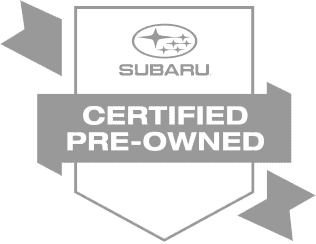Planet Subaru has installed a pair of 800-gallon tanks in its service area that collect rainwater, filter it and use it for its customer car wash.
Jeff Morrill admits that the giant contraption his team at Planet Subaru in Hanover, Mass., slowly built in a corner of the dealership's service department over the last two years probably doesn't make financial sense at most dealerships - but the new rainwater-powered car wash works for them, and it is decidedly on-brand.
Designed in-house by Dale Lathrop, Planet Subaru's managing partner and an engineer by training, the gravity-powered system captures rainwater runoff from the dealership's solar panel-covered rooftop, filters and captures it in a pair of 12-foot-tall, 800-gallon tanks, and uses it to wash customers' vehicles.
The total cost was about $20,000, Morrill said, but the result, thanks to the town's 52 inches of average annual rainfall? The dealership has used zero municipal water to hand-wash hundreds of vehicles since the tanks went active in April.
"An inch of rain is enough to fill the ... tanks we have, and full tanks so far last about 10 days," said Morrill, dealer principal.
The tanks essentially work like giant residential rain barrels, Morrill said.
"It's a very Archimedean system, because we're just using gravity. It's pretty elegantly simple," he said. Rainwater runoff from the dealership's 23,000-square-foot roof flows to a drain with a 6-inch pipe below. It's filtered several times to remove debris and sediment, and if the tanks are full, the overflow is diverted into the normal stormwater treatment system. Gravity provides ample water pressure to operate the car wash hoses.
The giant rain barrels replaced a large water recycling system that was in place when Morrill and his older brother, John, purchased the dealership in 2002, and which he called the source of constant aggravation.
"For anybody that's ever had one of those systems installed, they can be frustrating. Mechanically, they're very complex. It's very difficult to get the water as clean as you need it," Morrill said. "We fought with that system for years, and then we finally removed it and just had our [storm]water treated off-site."
Doing so increased the dealership's environmental footprint, Morrill said, which was the spark that initially led to the development of the rainwater-powered car wash.
Still, Morrill admits, the return on investment - even at less than the cost of just one of the 100 or so new vehicles the dealership sells each month - will be slow. "We are paying only about 2 cents per gallon for water, and we used about 50,000 gallons of municipal last year for the whole dealership," including washing cars. "It's a very long-term payback, admittedly, but these projects don't have to pencil out financially."
Why? Because of the Subaru brand, Morrill argues, and the full-scale environmental niche that Planet Subaru has carved for itself.
Take the 374-panel solar array that's on the roof. Not only does the 75-kilowatt system provide about 90 kWh of electricity per year to the dealership - enough to run many of the dealership's functions year-round - but there's a kiosk in the showroom that displays the solar array's real-time energy output.
All of the dealership's lights - both inside and out - are motion-activated LEDs. There's a nearly half-mile nature trail through the property. There are scores of fruit trees from which to pick a seasonal snack. And occasionally, the dealership does a fall outdoor cleanup by bringing in goats and sheep to naturally process any overgrown vegetation.
"There's a cultural advantage to doing these things," Morrill said. "When we interview prospective teammates, some people respond favorably to the things that we do and the way that we work, and that gives us an advantage in hiring. It sets us apart."




